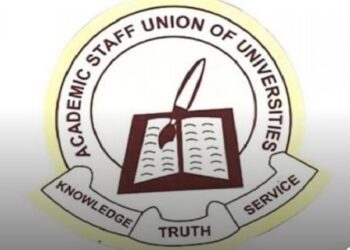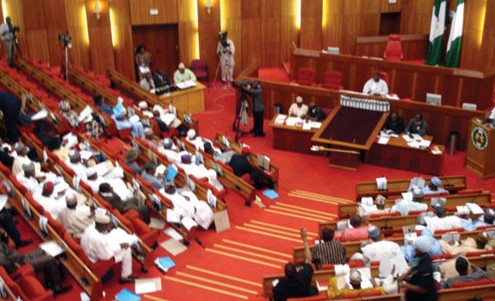*Stakehokders Accuse Banks, Universities
Following approvals of the Federal Government’s loans to some university students after payment of tuition fees, the affected students are now confronted with delays in the repayment of the fees paid to the university authorities.
Investigations by metrobusinessnews.com (MBN) show that the present delay tactics employed by the affected universities is a continuation of the existing ‘unholy alliance’ between the universities and deposit money banks (DMBs) to shortchange the students whose applications have already been approved and money disbursed.
Further investigations revealed that some students, whose applications were verified by NELFUND, one month, after submission, were not paid until seven months later, a delay allegedly orchestrated by the banks and affected universities to buoy their finances.
Because, for the affected students, the approved Fund did not come before the commencement of the current session, due to pecuniary interests, their parents had to make provision for their wards and paid the tuition so as to enanle their wards resume the session last year.
The issue is that, rather than reimbursing the students immediately, the universities have resorted to promises, telling the affected students to be patient, a development that is basically becoming concerning to both the students and their parents.
Other universities told their students to route their requests through the Bursers, but even then, it has been series of delay tactics.
According to an undergraduate of a federal university in North Central, “since we received the monthly stipend of M20,000 in February, we have not been reimbursed with the tuition we paid at the beginning of the session. We have been told to wait that they ate compiling the list.”
Another undergraduate told MBN that they were told to “write individually to the Burser of the school, but, for the past three weeks, we have not heard anything from them.”
Some analysts have called on the federal government to intervene, noting that the ‘racketeering’ is real. They blame banks for declaring huge profits at the expense of the people and economy.
In fact, recently, National Orientation Agency (NOA), raised serious concerns about the administration of the loan scheme.
In a post on its X handle, Director General of the NOA, Mallam Lanre Issa-Onilu, reported findings from its Community Orientation and Mobilization Officers (COMO), which suggested that schools and banks have engaged in actions that deprive students of their rightful loan benefits.
ALSO READ:Anxiety Over Students’ Loan Disbursements As NELFUND Closures 2023/24 Applications
However, the specific institutions and banks involved were not disclosed.
According to NOA, “Recent investigations into the disbursement of the Federal Government Student Loan Fund have uncovered several unethical practices by some institutions of higher learning.”
The Director General of the Agency shared these findings after a meeting with Managing Director of NELFUND, Mr. Akintunde Sawyerr, the body responsible for overseeing the loan scheme.
According to the investigation, certain universities have deliberately withheld critical financial information regarding disbursed student loans for their personal gain.
In some cases, institutions have received the loan amounts directly into their accounts, but failed to inform the affected students, leaving them unaware of payments made in their names.
Additionally, some universities require students to pay tuition fees despite receiving funds from NELFUND on their behalf.
“The NOA’s feedback shows how specific institutions have, in connivance with some banks, deliberately delayed payments to successful student applicants for personal financial benefit,” said Issa-Onilu.
“Such actions are both unethical and a breach of the principles upon which NELFUND was founded. Legal action will be pursued against institutions engaging in such deceptive practices.”
To address the issue, NOA directed its state directorates to gather additional feedback from students across the country to facilitate appropriate action against erring schools and banks.
The federal government has also issued a stern warning to institutions and financial bodies involved in the malpractice to immediately desist.
The NOA has emphasized the need for transparency in the disbursement process, urging institutions to uphold ethical standards.
Mallam Issa-Onilu expressed hope that stricter oversight and accountability measures would restore trust in the student loan program and ensure that funds reach those they are intended to help.
The student loan scheme, initially enacted in June 2023 under President Bola Tinubu, was designed to provide interest-free loans to assist Nigerian students.
Initially scheduled for rollout in October 2023, delays in implementation pushed the re-enactment of the program to April 2024, with the pilot phase commencing in May 2024 to cover federal tertiary institutions.











